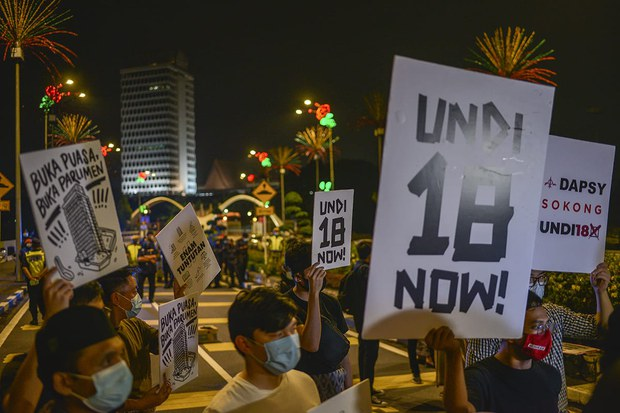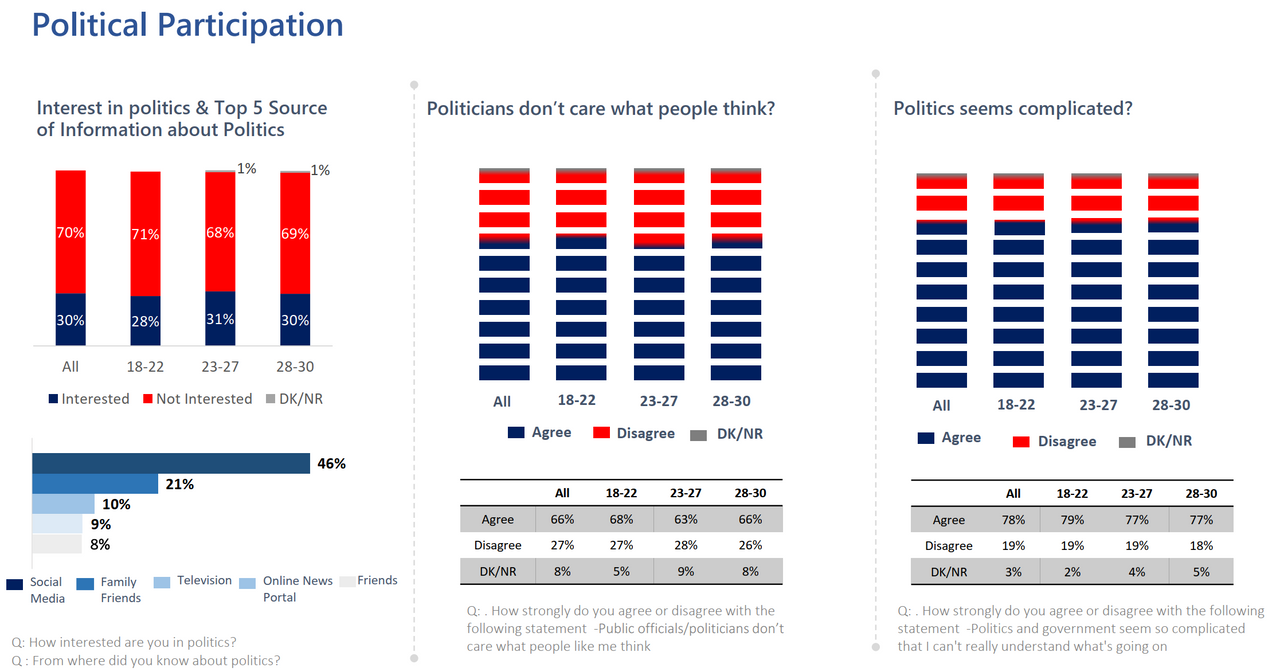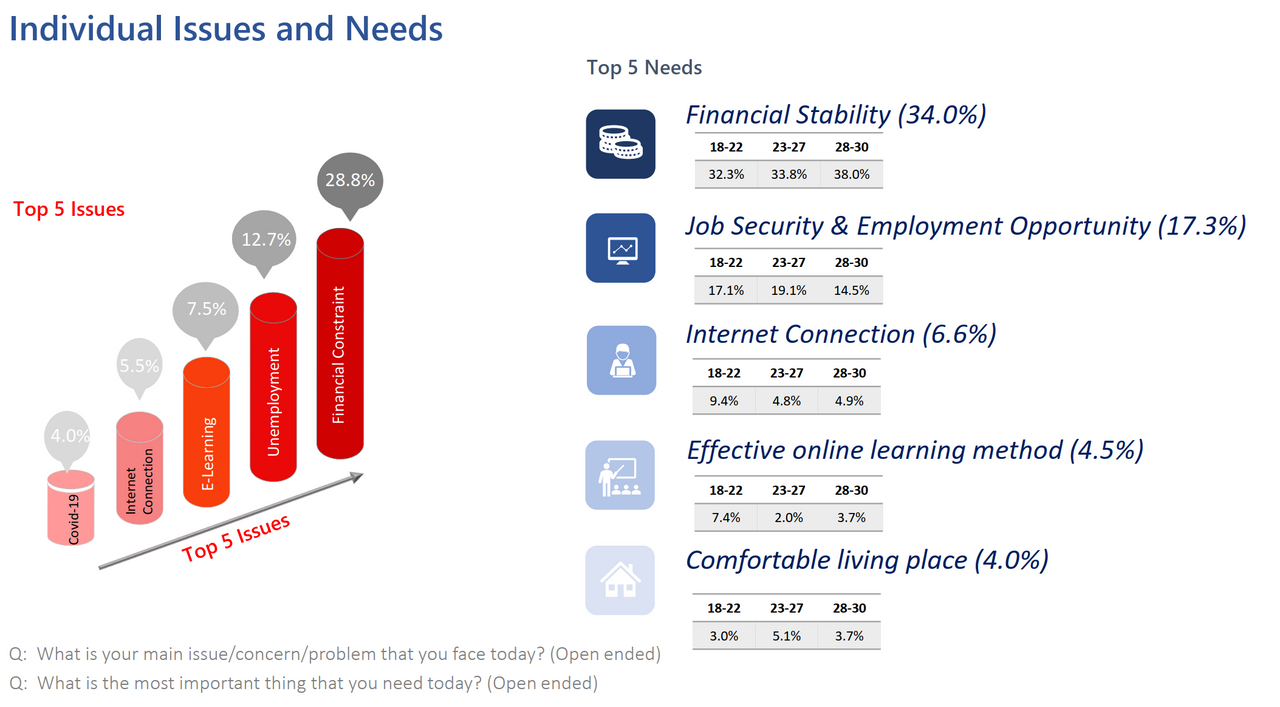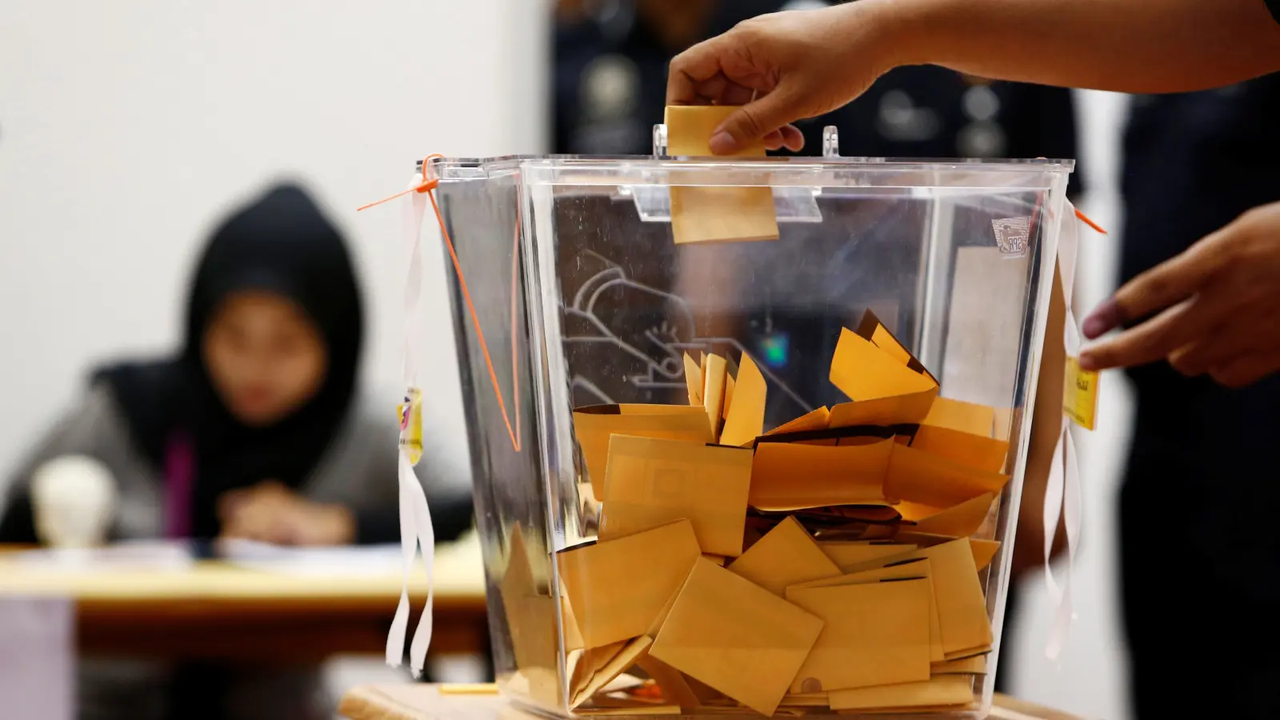'Undi 18' Will Come Into Effect On 15 Dec. This Is How It'll Affect You & M'sian Politics
Registering yourself as a voter at post offices or via an online portal is a thing of the past.
The government has finally set 15 December for the implementation of 'Undi 18', the law that lowers the voting age from 21 to 18 and allows all electorates to be automatically registered for voting
According to Malaysiakini, the federal gazette was signed by Chief Secretary to the Government Tan Sri Mohd Zuki Ali on 25 November and it was published yesterday, 1 December.
"In exercise of the powers conferred by Subsection 1(2) of the Constitution (Amendment) Act 2019 [Act A1603], the Yang di-Pertuan Agong appoints 15 December 2021, as the date on which Section 3 of the Act comes into operation," read the gazette, as reported by Bernama.
Section 3 of the Constitution (Amendment) Act 2019 states the amendment will set the minimum age of voting at 18 and allow automatic voter registration (AVR).
The law also allows 18-year-old Malaysians to run for the office, reported New Straits Times.
The implementation can be seen as a big win for youths in Malaysia, as the implementation of the proposed amendment was delayed even though it was approved in Parliament in July 2019.
In late March, the Election Commission (EC) announced that it wanted to push implementation to September 2022, blaming the COVID-19 pandemic for slowing work down.
The government was taken to court over the delay, and on 6 September, the Kuching High Court ordered the EC and the government to implement 'Undi 18' by 31 December.
With the historic amendments finally coming into force on 15 December, here are five things you need to know about how it may affect you and Malaysian politics:
1. One million Malaysians aged between 18 and 21 will join the next election
While it is uncertain what is the exact figure of the Malaysian population aged between 18 and 21, EC deputy chairman Azmi Sharom estimated in September that the figure is around one million, reported Malay Mail.
2. A large chunk of Malaysians in the age group think politics are complicated
According to the 'National Youth Survey Findings 2021' conducted by independent pollster Merdeka Center, 79% of respondents — aged between 18 and 22 — said that they felt that politics and government seem to be complicated and that they "can't really understand what's going on".
Among the different age groups, respondents aged between 18 and 22 showed the least interest in politics at 71%, followed by respondents aged between 28 and 30 at 69% and respondents aged between 23 and 27 at 68%.
Respondents aged between 18 and 22 also expressed their grim views on politics when asked whether politicians care about the people.
68% of them agreed that politicians neglect the people, 5% higher than respondents aged between 23 and 27 and 2% higher than those aged between 28 and 30.
It is worth noting that the survey did not sort their data to the 18 to 21 age group. It also included people aged 22. Thus, it might not be an accurate representation of the new voters in the implementation of 'Undi 18'.
3. With a much younger voter base, politicians will now need to target issues that affect this age group more, such as Internet connectivity and effective online learning methods
According to the same survey conducted between 19 February 2021 and 20 March 2021, respondents aged between 18 and 22 had a lower focus on issues pertinent to financial stability, job security and employment opportunity, and comfortable living place, as compared to other age groups.
Internet connection fared more importance to them, with 9.4% answering that the issue as of their concerns — about 4.55% higher than the other two age groups.
7.4% of respondents aged between 18 and 22 also reported effective online learning methods were an issue they faced, while only 2% and 3.7% of respondents aged between 23 and 27 and respondents aged between 28 and 30 respectively thought the issue was important to them.
4. Automatic voter registration (AVR) will bring in 4.4 million electorates aged 21 and above to the poll
Before 'Undi 18' is implemented, electorates had to register themselves to vote online through the MySPR Daftar portal. The portal was introduced in July 2019.
Prior to that, electorates had to go to post offices, EC headquarters, state election offices, and Malaysian embassies (for Malaysians living overseas), among other offline channels to register themselves as voters.
With 'Undi 18' in effect, registration — via either online or offline channels — is a thing of the past. Every Malaysian aged 18 and above will automatically become an electorate under the new implementation.
In a report by Malay Mail published yesterday, 1 December, the implementation will see 5.6 million additional voters.
4.4 million of them are aged above 21, while 1.2 million are aged between 18 and 21.
On 9 September 2020, then deputy minister in the Prime Minister's Department (Parliament and Law) Datuk Shabudin Yahaya said 4.2 million unregistered voters in the country represented about 22% of the total number of Malaysians who are eligible to vote.
During the 14th General Election (GE14), The Star reported that 12,299,514 Malaysians turned out to vote.
The turnout rate was 82.32%. It had 14,940,624 registered voters then.
The 15th General Election (GE15) must be held by July 2023, before current Prime Minister Datuk Seri Ismail Sabri's term ends.
5. Sarawakians aged between 18 and 20 cannot vote in the upcoming state election even though 'Undi 18' will be in effect three days ahead
Minister in the Prime Minister's Department (Parliament and Law) Datuk Seri Wan Junaidi Tuanku Jaafar said today, 2 December, that 18- to 20-year-old Sarawakians will not be able to participate in the state election although the federal government and the Sarawak government welcome it, reported Malay Mail.
Sarawakians will hit the polls this 18 December.
"The gazettification (sic) is just a process in order to make use of 'Undi 18' by January next year," he told the online portal, stressing that the implementation will only be in effect on 3 January next year.
"The electoral roll is not as simple as that. It is just a list because we have to eliminate those who are in prison, who are mad, and those who have died."
Wan Junaidi explained that the implementation is complicated in Sarawak because people in the state do not have to report deaths.
"As a result of that, there are names of people aged over 100 years old because nobody reported their deaths," he said, adding that the EC will conduct checks with the families to find out whether those who are above 100 years old are still alive.
"Once this is done, only then the electoral roll can be considered as acceptable and confirmed in accordance with the regulations."
"Once it becomes automatic next year, [you can] imagine everybody will go automatically into the list, and every quarterly, the EC will examine the list and confirm it."
There are 1,252,014 electorates in the state so far, and it is estimated that there are 135,000 youths aged between 18 and 20, reported Malay Mail.





